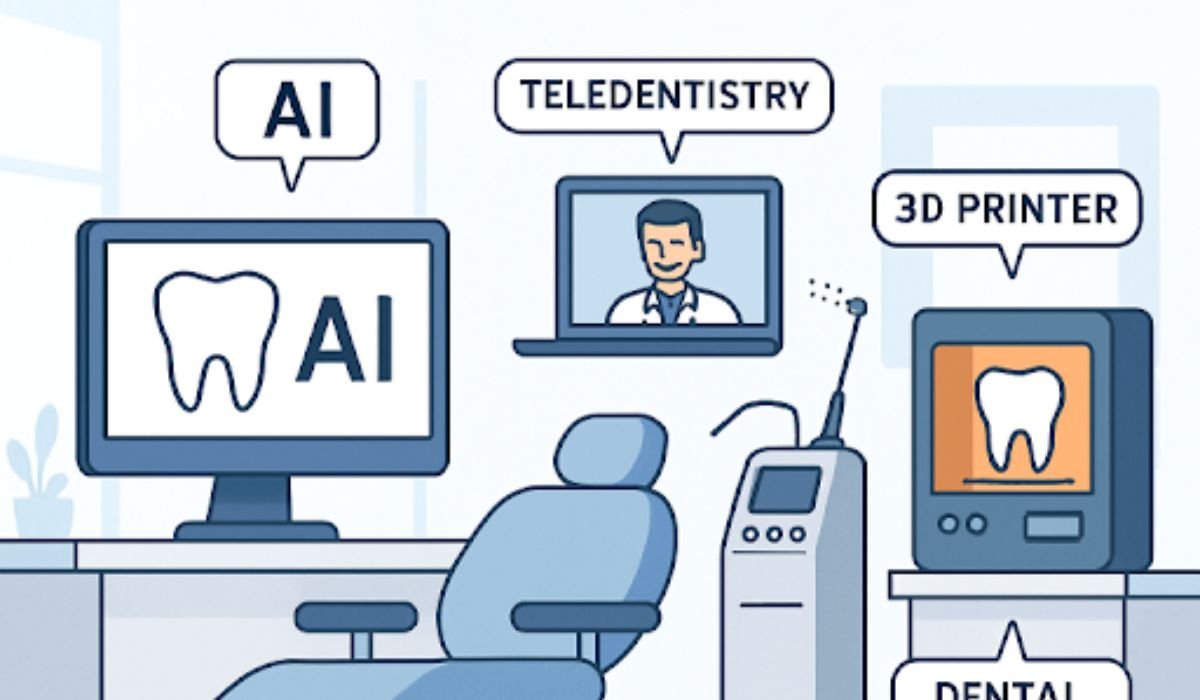Millions of people use cannabis as a medication for mental and emotional health. But scientific studies often contradict themselves. Research suggests that cannabis may have a positive emotional impact, primarily through its effects on the brain and nervous system. Regarding the long-term impacts of cannabis use on mental health, other studies have produced different results. Before using marijuana for medical purposes, it is always advisable to speak with an MMJ doctor.
Based on your physiology, dosage, and frequency of use over time, the key to comprehending how cannabis affects your emotions may change. You may also be affected by the type of cannabis you use, such as THC-rich or CBD-rich. Let’s look into it.
Cannabis and the Brain
How does marijuana affect your emotional state? Answering that question requires an understanding of how the primary psychoactive component of marijuana changes brain activity. The chemical structure of delta-9 tetrahydrocannabinol, or THC, is similar to that of the natural neurotransmitter anandamide in your brain.
Known as the “bliss molecule,” anandamide is associated with increased vitality and a happier mood. This structural resemblance is one of the primary reasons THC also heightens euphoric sensations. But just how exactly does this process work?
Human Endocannabinoid System
THC interacts with your body’s intricate communication network, known as the endocannabinoid system, or ECS. Important processes like hormones, temperature, sleep, emotional processing, memory, and learning are all regulated by the interaction of chemical signals known as neurotransmitters and receptors within your ECS.
The two most significant chemical receptors in the ECS are CB1 and CB2, though there are others. CB1 receptors are primarily found in the brain and nervous system, whereas CB2 receptors are found in the immune and peripheral nervous systems. When you consume cannabis or substances derived from it, cannabinoids interact with your body’s CB1 and CB2 cannabinoid receptors to produce a range of effects.
THC and the Brain
THC’s exceptionally high affinity for CB1 receptors makes it necessary for your nervous system to function properly. Depending on the person and level of use, this affinity may have both positive and negative cognitive effects.
For example, THC affects the hippocampus, the area of the brain responsible for memory formation, and chronic cannabis use is linked to a decrease in short-term memory. However, THC stimulates cannabinoid receptors, which in turn activates your brain’s reward system. Following this, dopamine is released, which can boost your motivation, inventiveness, and happiness.
Your amygdala is also impacted by the intricate ECS effects of cannabis. Your “fight or flight response,” which affects emotions like pleasure, anger, and fear, is mainly brought on by the amygdala, an almond-sized brain region. An overactive amygdala can lead to hypervigilance or a persistent state of stress, whereas a controlled one can promote feelings of peace and relaxation.
THC may have anti-anxiety properties due to its effects on the amygdala. For example, a 2008 study in the Journal of Neuroscience found that THC reduces the amygdala’s response to social threats, which dampens unhealthy, fear-based reactions. In a nutshell, THC’s amygdala effect can relieve nervous system tension and stop you from overreacting to stressful events.
The Effects of Marijuana on Emotional Well-Being
It’s easy to understand why using cannabis can make you feel so happy because THC and anandamide, the “bliss molecule,” have similar chemical properties. The same reward centers that anandamide affects are directly affected by marijuana use, which increases dopamine levels and improves motivation and pleasure.
Because of its uplifting properties, some people who are struggling with anxiety and depression turn to cannabis for its therapeutic benefits. Similarly, people who experience chronic pain often turn to cannabis because they find it improves their mood, quality of life, and perception of pain.
Because it reduces stress and improves sleep, some people with less chronic conditions use cannabis to unwind after a long day. Surveys show that people believe marijuana helps them feel more emotionally in tune, happier, calmer, and less stressed.
Because of its effects on the endocannabinoid system, cannabis has been the focus of much research regarding its potential to treat a variety of anxiety disorders. Products made from cannabis are now recognized by the scientific community as potentially contributing to the development of novel and creative treatments for mental health conditions. Researchers do not, however, claim that cannabis is a panacea for emotional issues, and its effects might not be as strong or persistent over time.
Recent studies to better understand how cannabis affects emotions have found that cannabis use is associated with both positive and negative mental health outcomes. THC unquestionably results in euphoric and relaxing effects. These experiences, though, are not common and may not last. In contrast to feelings of bliss, some people report experiencing intense anxiety, panic, and fear.
Emotional Benefits and Risks of Marijuana Use
The effects of marijuana on mental health vary depending on the individual, dosage, and frequency of use over time, according to a large body of research spanning several decades. Each individual should read these studies, speak with their physicians, and pay attention to their bodies when determining how to use cannabis for emotional support.
Research Insights on the Benefits of Cannabis
Here are some studies on marijuana’s beneficial emotional effects:
- Anti-anxiety and mood-boosting: The anxiolytic and mood-boosting effects of small doses of cannabinoids like CBD and THC are two of the most often mentioned reasons people use cannabis.
- Chronic pain relief: Adults with chronic pain conditions who received cannabis treatment reported clinically significant pain reductions, which improved their quality of life.
- Decreased opioid dependence: Cannabis’s capacity to alleviate pain may help people become less reliant on opioids. States with legalized medical marijuana programs have lower rates of opioid prescriptions and opioid-related deaths.
- Improved cognitive function: Studies show that patients who used medical marijuana to treat anxiety and other mental illnesses reported fewer clinical symptoms and improved cognitive function.
- Reduced stress: According to a study conducted by a research team from Washington State University, people who used high CBD strains reported much lower levels of stress, anxiety, and depression than people who only smoked high THC strains. This is probably because CBD can lessen a number of THC’s harmful side effects, like paranoia.
- Improved empathy: Recent cannabis use may improve empathy, fairness, benevolence, and prosocial behaviors.
- Decreased symptoms of PTSD: A double-blind, placebo-controlled study that was published in PLOS ONE found that cannabis strains with varying THC and CBD concentrations were well tolerated and significantly lessened symptoms of PTSD.
Research Findings on the Risks of Cannabis
Research on the benefits of marijuana suggests that long-term use may outweigh short-term benefits. This may be due to the fact that overuse can overwhelm the brain’s receptors, which may reduce the total number of CB1 receptors and increase tolerance to the effects. Thus, there are several “risks” associated with long-term drug use:
For example, smoking cannabis can significantly reduce stress, anxiety, and depression in the short term, but it may also make depressive symptoms worse over time, per a study published in the Journal of Affective Disorders.
Other studies with similar findings include:
- Researchers from Colorado State University found that cannabis use may affect one’s ability to empathize based on study participants’ reactions to faces displaying a variety of emotions. The results of the study indicated that cannabis users exhibited a reduced ability to identify emotions and a greater capacity for emotional empathy.
- A study on teenagers found that long-term marijuana use can overload cannabinoid receptors in the amygdala. Overstimulation in this area may cause young adults to become hypervigilant and more prone to mood disorders later on.
- Long-term cannabis users generate less dopamine than non-users of the same age and sex, according to Imperial London researchers using PET brain imaging. These findings could help clarify why some individuals associate cannabis use with a lack of motivation.
Withdrawal symptoms can also occur after prolonged cannabis use. Chronic cannabis users—especially women—who take tolerance breaks may experience cannabis withdrawal syndrome, which is typified in part by mood swings like unexplained anger and anxiety. It is important to keep in mind that the condition typically disappears two days to four weeks after stopping.
Interestingly, the same negative effects on mental health were not found in a long-term study of nearly 35,000 adult cannabis users. Researchers interviewed adults who were at least eighteen years old, three years apart. They discovered that while cannabis was not linked to mood or anxiety disorders, it was significantly linked to substance use disorders.
Conclusion
Cannabis use has a wide range of complex emotional effects because it directly affects your brain’s emotion centers. Through interactions with your brain’s amygdala, short-term, moderate dosages can lessen your stress reactions. It can also increase dopamine, which can reduce anxiety symptoms and give you happy, uplifting bursts of energy. Medical research has shown that marijuana use has a wide range of short-term positive emotional effects.
Higher dosages, however, may also have adverse effects, especially if taken frequently or for a long time. Reduced motivation, short-term memory loss, an overactive amygdala, and a shrinkage of the brain’s emotional centers are some of these negative effects, which may limit your ability to fully experience emotions.
Cannabis will have different effects on you and those around you due to your unique physiology. You might not benefit from what works for someone else. You must figure out what dosage and frequency work best for you if you want to use cannabis for positive emotional outcomes.
Obtain your own medical marijuana card and take advantage of the numerous potential advantages cannabis has for both physical and mental health. When it comes to applying for the Barboursville medical marijuana card online, the medical staff at West Virginia MMJ Card Doctor is here to help.











